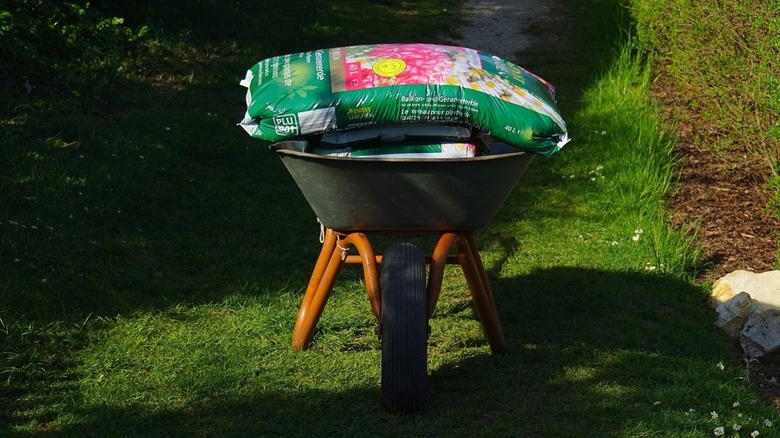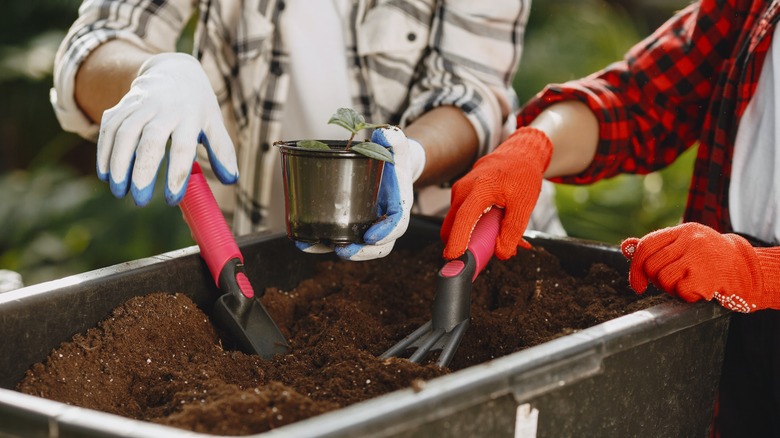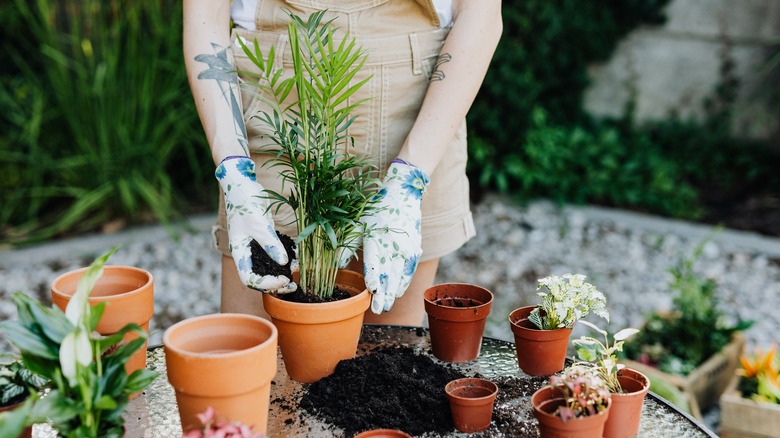Does The Potting Soil You Use Have A Lifespan?
Potting soil is essential in gardening, providing the necessary support, nutrients, and moisture retention for plant growth. However, it's not an inert substance. Generally, unopened bags of potting soil can retain their quality for up to one to two years from purchase, provided they are stored in a cool, dry place away from moisture and direct sunlight. Opened bags may have a shorter lifespan, typically remaining effective for six months to a year. Environmental factors such as sunlight, temperature, and humidity play a significant role in the degradation of potting soil. Additionally, the extraction of nutrients by plants and the activity of microorganisms contribute to its gradual depletion.
Potting soil that has reached the end of its lifespan may exhibit changes in texture, becoming clumpy or compacted. It might also change in color, appearing dull or faded. Unpleasant odors can also indicate microbial imbalances or decaying organic matter. Expired potting soil can lead to stunted plant growth, reduced flowering or fruiting, and increased susceptibility to pests and diseases. Plants grown in this may also display signs of nutrient deficiencies, such as yellowing or chlorosis of leaves, poor root development, or general weakness.
Influencing factors
Too much sun can cause soil to dry out more quickly, leading to nutrient depletion and reduced water-holding capacity. Extreme temperatures can affect microbial activity, altering the breakdown of organic matter and nutrient availability. High humidity levels can contribute to increased moisture retention, potentially leading to reduced drainage and mold growth.
Nutrient depletion is another significant factor that affects the lifespan of potting soil. As plants grow and thrive, they gradually extract essential nutrients for their development. Over time, nutrient levels can become depleted, impacting the availability of vital elements necessary for plant growth. This can lead to stunted growth, yellowing leaves, or other symptoms of malnutrition.
Microbial activity can also impact the lifespan of potting soil. Microorganisms, including bacteria and fungi, naturally occur in soil and contribute to its fertility. They decompose organic matter, releasing nutrients that are essential for plant uptake. However, excessive or imbalanced microbial activity can cause adverse effects.
Extending potting soil's longevity
To maintain the quality of potting soil, store it in a dry and protected place when not in use. Exposure to moisture can lead to the growth of mold or fungi, which can negatively impact structure and nutrient content. Preventing contamination by keeping it away from chemicals or pests is also essential. Recycling and reusing potting soil can also be an effective way to extend its lifespan. When removing plants from containers or pots, carefully sift and screen the soil to remove debris and roots. Then, mix the sifted soil with fresh potting soil or compost to help revitalize its nutrient content and structure.
Adding organic matter, such as compost, enriches soil with nutrients and enhances its water-holding capacity and aeration. Incorporating compost before planting or as a top dressing can rejuvenate and extend its lifespan. Other amendments, such as perlite or vermiculite, can improve drainage and prevent compaction, ensuring the mixture is loose and porous. Conducting periodic tests to determine nutrient and pH levels can provide valuable insights into soil health and aid in making appropriate adjustments. Adding organic fertilizers or slow-release fertilizers as needed can help replenish nutrients for sustained longevity.


